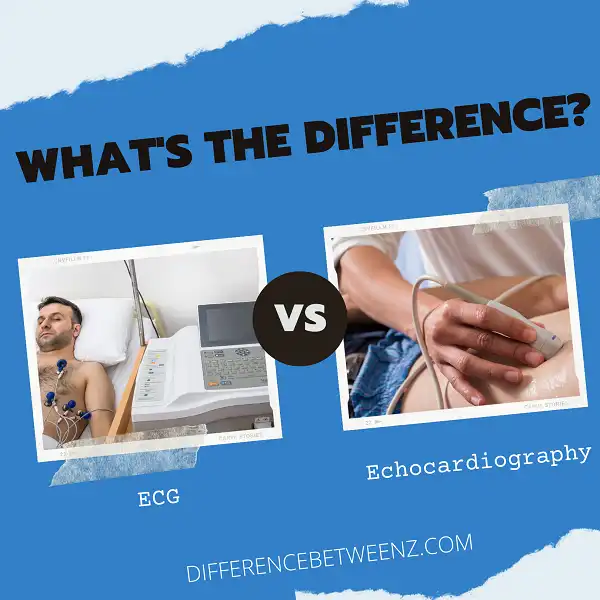When it comes to the heart, there are a few key tests that doctors use to measure its health. One is an electrocardiogram (ECG), which measures the heart’s electrical activity. Another is an echocardiogram (echo), which uses ultrasound waves to create a picture of the heart. While both tests can tell doctors a lot about the heart, they each have their own strengths and weaknesses. In this blog post, we’ll take a closer look at the difference between ECG and echo.
What is ECG?
ECG is short for electrocardiogram. It’s a test that measures the electrical activity of your heart to show how well it’s working.
- An ECG is sometimes called an EKG or ECG. ECGs are often done as part of a routine physical exam, especially if you’re over age 50 or have risk factors for heart disease.
- A healthy ECG usually shows a regular rhythm and a lack of any major problems. If your ECG is abnormal, it may be a sign of a heart condition.
- Your doctor may order other tests to confirm the diagnosis and develop a treatment plan. These may include a stress test, echocardiogram, cardiac catheterization, and coronary angiography.
What is Echocardiography?
Echocardiography is a diagnostic tool used to assess the heart’s function and structures. It uses high-frequency sound waves, or ultrasound, to create images of the heart.
- Echocardiography can be used to evaluate the heart’s chambers, valves, and surrounding structures. It can also be used to assess the heart’s function, including blood flow and pumping ability.
- Echocardiography is a non-invasive procedure, which means it does not involve any incisions or needles. Echocardiograms are usually performed by trained cardiologists, and they typically take 30-60 minutes to complete.
- Echocardiography is a safe and effective diagnostic tool that can provide valuable information about the health of the heart.
Difference between ECG and Echocardiography
ECG and Echocardiography are two important tests that help doctors assess the health of the heart. ECG stands for electrocardiogram, and it is a test that measures the electrical activity of the heart. This test is often used to diagnose heart problems, such as arrhythmias. Echocardiography, on the other hand, is an ultrasound test that produces images of the heart. This test is often used to assess the heart’s size, function, and blood flow. Both ECG and echocardiography are important tests for diagnosing and managing heart conditions.
Conclusion
So what is the difference between ECG and echocardiography? The main difference is that ECG measures the electrical activity of your heart, while echocardiography uses ultrasound waves to create a picture of your heart. This means that an ECG can show how well your heart muscle is contracting, while an echocardiogram can give information about the size and shape of your heart as well as how well it’s pumping blood. If you are experiencing any symptoms that could be related to problems with your heart, such as chest pain or shortness of breath, it’s important to get both an ECG and an echocardiogram so that your doctor can get a complete picture of what might be going on.


